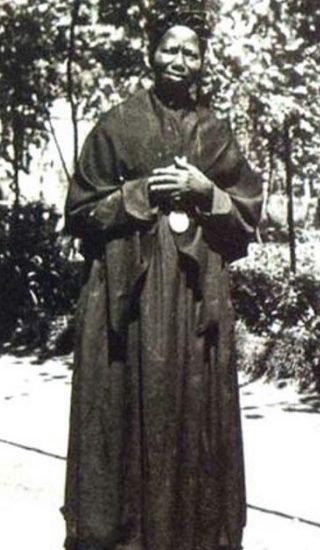
Today, February 8, is the memorial of Saint Josephine Bakhita.
She was born to a well-to-do and respected Sudanese family in 1869. She was kidnapped by Arab slave-traders (she was around 7 to 9 years old). Because she was severely traumatized by her abduction, she completely forgot her real name. She was given the name Bakhita, meaning “lucky” in Arabic by her captors.
As a slave, she was sold and resold in the markets at El Obeid and Khartoum. She suffered in the hands of her cruel masters who physically abused her. At one point, she was badly hurt she ended up bedridden for a month. Her worst experience was when she was painfully scarred and branded like a cow.
In 1883, Bakhita was bought by a kind Italian consul, Callisto Legnani, who planned to set her free. Legnani brought her to Italy in 1885 and gave her work as a nanny for the family of Augusto Michieli. Like Legnani, the Michielis treated her well. The Michieli matriarch later left her in the care of the Canossian Daughters of Charity, who introduced her to Christianity. Bakhita became a Catholic in 1890, taking the name Josephine to symbolize her new life.
She joined the Canossians, taking her vows in 1896 in Verona, Italy and serving as a Canossian Sister for the next 50 years.
She was remembered for her smile, and for being gentle, warm, and ready to help. She never refused anyone who needed help. When her biography was published in 1930, people invited her to become a speaker in various events.
A student once asked Josephine: “What would you do if you were to meet your captors?” Josephine quickly replied, “If I were to meet those who kidnapped me, and even those who tortured me, I would kneel and kiss their hands. For, if these things had not happened, I would not have been a Christian and a religious today.”
She died in 1947 of natural causes at age 77-78. Pope St. John Paul II beatified Josephine in 1992 and canonized her in 2000.